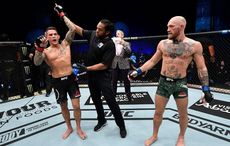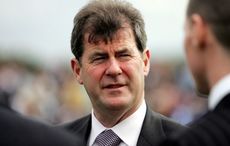Emma O’Reilly, masseuse for the U.S. Postal cycling team told investigators that Lance Armstrong and the team’s doping was apparent from the beginning.
This year O’Reilly gave a sworn account of her time on the team to American doping investigators. Her account, along with those of riders on the team and dozens others, forms the heart of the United States Anti-Doping Agency (USADA) formal case.
O’Reilly joined the U.S. Postal Service cycling team as a soigneur in 1996 after serving as an assistant on an American based cycling team and Ireland’s national cycling team. Her job description was to give massages, book hotel rooms, and prepare food, but facilitating the doping regime quickly became part of her job.
O’Reilly, still under the age of thirty at the time, transported doping materials across borders, disposing of drugs and syringes whenever authorities began to sniff around, and distributed performance enhancing drugs to the team members whenever they needed them. She once traveled from France to Spain to pick up illegal drugs for Armstrong and delivered them to him in a McDonald’s parking lot in Nice, France. She also used her skills with makeup to hide the bruises from needle injection sites on cyclists’ arms.
Read more: Irish journalist who brought down Lance Armstrong is vindicated at last
In an interview with the New York Times, O’Reilly commented on the team’s doping, “It was prevalent, but discreet. The drugs were just part and parcel of things. You didn’t analyze it at the time. It was just part of things.” Riders rarely discussed doping openly, although some of them complained that the team was not aggressive enough in its drug regime. She was giving Armstrong a massage when he and team officials created a story to hide a positive drug test. He told her, “You know enough to bring me down.”
Another time when a staff member learned she was going to Belgium, he asked her to pick up a package and deliver it directly to rider George Hincapie. She was advised to avoid bringing it to the United States and he told her, “It is testosterone, and you do not want to transport it yourself.”
She quit the team in 2000 and journalists contacted her to talk about her experiences. She refused for years, worried that she would be seen as disloyal and was concerned about Armstrong and the team’s reactions. As the number of headlines about cycling deaths increased, she talked to the Sunday Times journalist David Walsh, who had contacted her. At the time she said, “By not saying anything, you’re part of the problem.”
Read more: Lance Armstrong quits as chairman of Livestrong, Nike cuts ties after Irish woman’s tell-all on doping scandal
O’Reilly first came public about what was going on in 2003 when she contributed to the book “L.A. Confidentiel: Les Secrets de Lance Armstrong.” The book written by Walsh and Pierre Ballester exposed Armstrong’s drug use. “Talking about it made me feel like I was being disloyal in a sense, like I was breaking the code. Lance tried to make my life a living hell.” Armstrong took her to court in England and sued her and the Sunday Times, which had printed part of the book, for libel.
“He was suing me for more than I was worth. I was worried he would bankrupt me.” She said he demonized her as a prostitute with a drinking problem. Walsh said in an recent interview, “Emma suffered from the lawsuit the most. This woman was an opponent of Lance Armstrong and was completely vilified.” After a three year battle, a legal settlement was reached. The Sunday Times paid $964,776 and wrote an apology and O’Reilly paid no money. She tried to return to normalcy, only occasionally talking about Armstrong, which received little attention.
O’Reilly currently works as a massage therapist in Manchester, England and she says that cycling isn’t a part of her life anymore. O’Reilly stated about the current state of the drug case, “I have to admit, I didn’t think it would come out with some much detail like this.” O’Reilly added, “I wanted to clean up cycling. There was intimidation, bullying and stress. You try and get on with your life. I was only speaking the truth.”




Comments